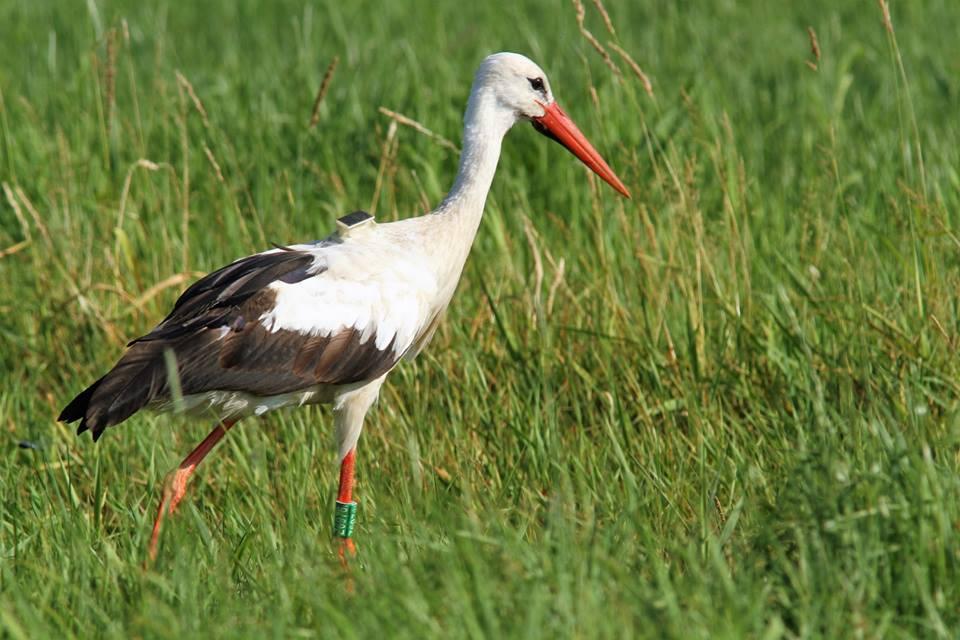The Embassy of the Republic of Poland in Beirut posted on its “Facebook” page the following:
“We are very sad to inform that one of our storks, Paul, had an accident with a high voltage pole in Bulgaria and unfortunately didn’t make it. We were able to monitor the migration rout of two storks, Paul and Irina, for almost a year, thanks to Ireneusz Kaługa from Grupa EkoLogiczna(www.grupaekologiczna.org.pl).
Luckily, Irina made it home safely after her long journey from Africa. Illegal hunters are just one of the numerous threats storks face during they migrations. The other dangers are high voltage lines, pesticides and growing urban infrastructure”.
What are storks?
Storks are large, long-legged, long-necked wading birds with long, stout bills. They belong to the family Ciconiidae. They are the only family in the order Ciconiiformes, which was once much larger and held a number of families.
Paul’s story
“Greenarea.me website “has already helped sponsor an initiative to monitor the stork “Paul” in his seasonal trip, during its migration from Poland to Africa.
This bird is named after the environmental activist Paul Abi Rached who visited Poland last year to cooperate with organizations working in the field of protection of storks, which is considered the country’s national bird .
According to the available information, the locating device placed on the stork’s leg has stopped operating in May, above the occupied Syrian Jolan, which indicated that the bird was exposed to hunting and it was detained. But later the radar tracked Paul that succeed in flying towards Europe until the it had an accident with a high voltage pole in Bulgaria and unfortunately didn’t make it.
“Greenarea.me” keeps raising awareness to highlight the dangers of the massacres affecting these migratory birds in their most important passages, including Lebanon.
Our website has supported the photography contest, which is under the auspices of the Polish Embassy in Beirut in 2015.
Back in Poland, and specifically in the town of Zivkovo where residents attend a beautiful distinctive experience with storks, that town protects its birds, whose number in the summer exceed the number of inhabitants, who believe that these birds bring luck, tourists, and even children, according to the ancient Polish legends.
These villages, which are located in northern Poland, near the border with Kaliningrad, depend on their birds to attract tourists and to fight displacement from the villages.
The villagers do everything they can to accommodate these large white birds who are considered as a good luck sign.
These birds have found that region as a heaven on Earth; more than 15 thousand pairs of white storks arrive each year in this country which is rich in lakes and marshes. Poland has 50 thousand birds of this type, meaning 20% of the total storks in the world, according to local authorities.
Poland has officially asked Lebanon to work to allow storks to cross the skies of Lebanon and return to their land to breed safely, noting that there is a bad reputation due to some Lebanese who hunt storks and post their pictures on Facebook pages, to squander your skills! After meeting with the Polish Ambassador to Lebanon, the Environment Minister has promised to follow up with the case, confirming that the “issuance of a law, which devoted environmental lawyers will monitor the irregularities”.
He also added that there will be cooperation with municipalities to prevent this phenomenon. There was also encouragement to place the storks in some parts of Lebanon, such as Bnashi, to drive awareness its importance.











